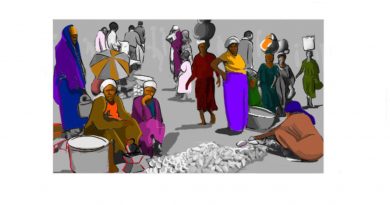Nigeria
What Can Hotels Teach Us about Smuggling?
By Maria Teresa Nagel, under the supervision of Kim Wilson. There is limited research describing the smuggling industry and its actors, particularly in Central America. Our study hopes to address this knowledge gap by disclosing how human smugglers lodge their clients and the role hotels play in the smuggling ecosystem.
Read MoreMigrants Hold onto Their Religious Identities for Emotional Support and to Build Networks Crucial to Their Journeys
By Lea Abi Zeid Daou and Nidhisha Philip, under the supervision of Kim Wilson. Writings on why religion is of significance to individual migrants have explored themes of religion as a reason for migration, religion as a means of sustenance in difficult circumstances, religion as an identity marker in new socio-cultural contexts, and religion as a source of reconciliation and healing. In this essay, we explore some of these same themes, basing our insights on interviews with trans-continental migrants traveling through Costa Rica and bound for the north.
Read MoreIn Adjusting to New Labor Markets, Migrants Draw on Past Experience and Retain a Strong Sense of Pride in Being Able to Contribute
By Conor Sanchez, under the supervision of Kim Wilson. Popular notions of migrants as unskilled or uneducated laborers, while sometimes true, are often false. Their jobs back home may not have always ensured adequate income, a factor that could have played a role in their decision to migrate, but they often required some technical knowledge or training. Our subjects had worked as photographers, teachers, accountants, sociologists, and business owners. Some were property owners, tending to farms and livestock or selling various kinds of merchandise out of their home. In many of the interviews, it also became apparent that these jobs had clearly formed an unshakeable part of their identity.
Read More

